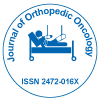మా గ్రూప్ ప్రతి సంవత్సరం USA, యూరప్ & ఆసియా అంతటా 3000+ గ్లోబల్ కాన్ఫరెన్స్ ఈవెంట్లను నిర్వహిస్తుంది మరియు 1000 కంటే ఎక్కువ సైంటిఫిక్ సొసైటీల మద్దతుతో 700+ ఓపెన్ యాక్సెస్ జర్నల్లను ప్రచురిస్తుంది , ఇందులో 50000 మంది ప్రముఖ వ్యక్తులు, ప్రఖ్యాత శాస్త్రవేత్తలు ఎడిటోరియల్ బోర్డ్ సభ్యులుగా ఉన్నారు.
ఎక్కువ మంది పాఠకులు మరియు అనులేఖనాలను పొందే ఓపెన్ యాక్సెస్ జర్నల్స్
700 జర్నల్స్ మరియు 15,000,000 రీడర్లు ప్రతి జర్నల్ 25,000+ రీడర్లను పొందుతున్నారు
ఇండెక్స్ చేయబడింది
- గూగుల్ స్కాలర్
- RefSeek
- హమ్దార్డ్ విశ్వవిద్యాలయం
- EBSCO AZ
- OCLC- వరల్డ్ క్యాట్
- పబ్లోన్స్
- యూరో పబ్
- ICMJE
ఉపయోగకరమైన లింకులు
యాక్సెస్ జర్నల్స్ తెరవండి
ఈ పేజీని భాగస్వామ్యం చేయండి
నైరూప్య
Brief Discussion on Metastatic Bone Osteolysis
Perez Jessica
Bone-resorbing osteoclast activation facilitates breast and prostate carcinoma bone metastasis. We have identified peroxiredoxin-4 (PRDX4) as a mediator of osteoclast genesis that is released by cancer cells through proteomics methods. Using immunoblotting and mass spectrometry, we now report the characterization of L-plastin in MDA-MB-231 human breast cancer cells’ conditioned media (CM). With L-plastin silenced by siRNA, the osteoclastogenic potential of MDA-MB-231 CM was significantly diminished. L-plastin was found in cancer-derived exosomes, and MDA-MB- 231 CM’s osteoclastogenic capacity was significantly diminished when exosomal release was inhibited. Recombinant L-plastin induced calcium/NFATc1-mediated osteoclastogenesis to levels comparable to continuous RANKL treatment when added to osteoclast precursors primed with RANKL for two days. We used ssRNA to generate MDA-MB-231 cells devoid of PRDX4, L-plastin, or both, and injected these cell populations into CD-1 immunodeficient mice via the tibia. When MDA-MB-231 cells lacking both L-plastin and PRDX4 were injected, micro-CT and histomorphometric analysis revealed a complete loss of osteolysis. Multiple human cancers, including breast and prostate carcinomas, showed an increase in L-plastin and PRDX4 mRNA expression, according to a meta-analysis. This study demonstrates that human breast cancer cells activate osteoclasts through the secretion of L-plastin and PRDX4.
సబ్జెక్ట్ వారీగా జర్నల్స్
- ఆహారం & పోషకాహారం
- ఇంజనీరింగ్
- ఇన్ఫర్మేటిక్స్
- ఇమ్యునాలజీ & మైక్రోబయాలజీ
- ఎకనామిక్స్ & అకౌంటింగ్
- కంప్యూటర్ సైన్స్
- కెమికల్ ఇంజనీరింగ్
- క్లినికల్ సైన్సెస్
- గణితం
- జనరల్ సైన్స్
- జియాలజీ & ఎర్త్ సైన్స్
- జెనెటిక్స్ & మాలిక్యులర్ బయాలజీ
- నర్సింగ్ & హెల్త్ కేర్
- పర్యావరణ శాస్త్రాలు
- ఫార్మాస్యూటికల్ సైన్సెస్
- బయోకెమిస్ట్రీ
- బయోమెడికల్ సైన్సెస్
- భౌతిక శాస్త్రం
- మెటీరియల్స్ సైన్స్
- మెడికల్ సైన్సెస్
- రసాయన శాస్త్రం
- వెటర్నరీ సైన్సెస్
- వ్యాపార నిర్వహణ
- సామాజిక & రాజకీయ శాస్త్రాలు
క్లినికల్ & మెడికల్ జర్నల్స్
- అంటు వ్యాధులు
- అణు జీవశాస్త్రం
- అనస్థీషియాలజీ
- ఆరోగ్య సంరక్షణ
- ఆర్థోపెడిక్స్
- కార్డియాలజీ
- క్లినికల్ రీసెర్చ్
- గ్యాస్ట్రోఎంటరాలజీ
- జన్యుశాస్త్రం
- టాక్సికాలజీ
- డెంటిస్ట్రీ
- డెర్మటాలజీ
- నర్సింగ్
- నెఫ్రాలజీ
- నేత్ర వైద్యం
- నేత్ర వైద్యం
- న్యూరాలజీ
- పల్మోనాలజీ
- పీడియాట్రిక్స్
- పునరుత్పత్తి ఔషధం
- ఫిజికల్ థెరపీ & పునరావాసం
- మందు
- మధుమేహం & ఎండోక్రినాలజీ
- మనోరోగచికిత్స
- మైక్రోబయాలజీ
- రేడియాలజీ
- రోగనిరోధక శాస్త్రం
- సర్జరీ
- హెమటాలజీ

 English
English  Spanish
Spanish  Chinese
Chinese  Russian
Russian  German
German  French
French  Japanese
Japanese  Portuguese
Portuguese  Hindi
Hindi